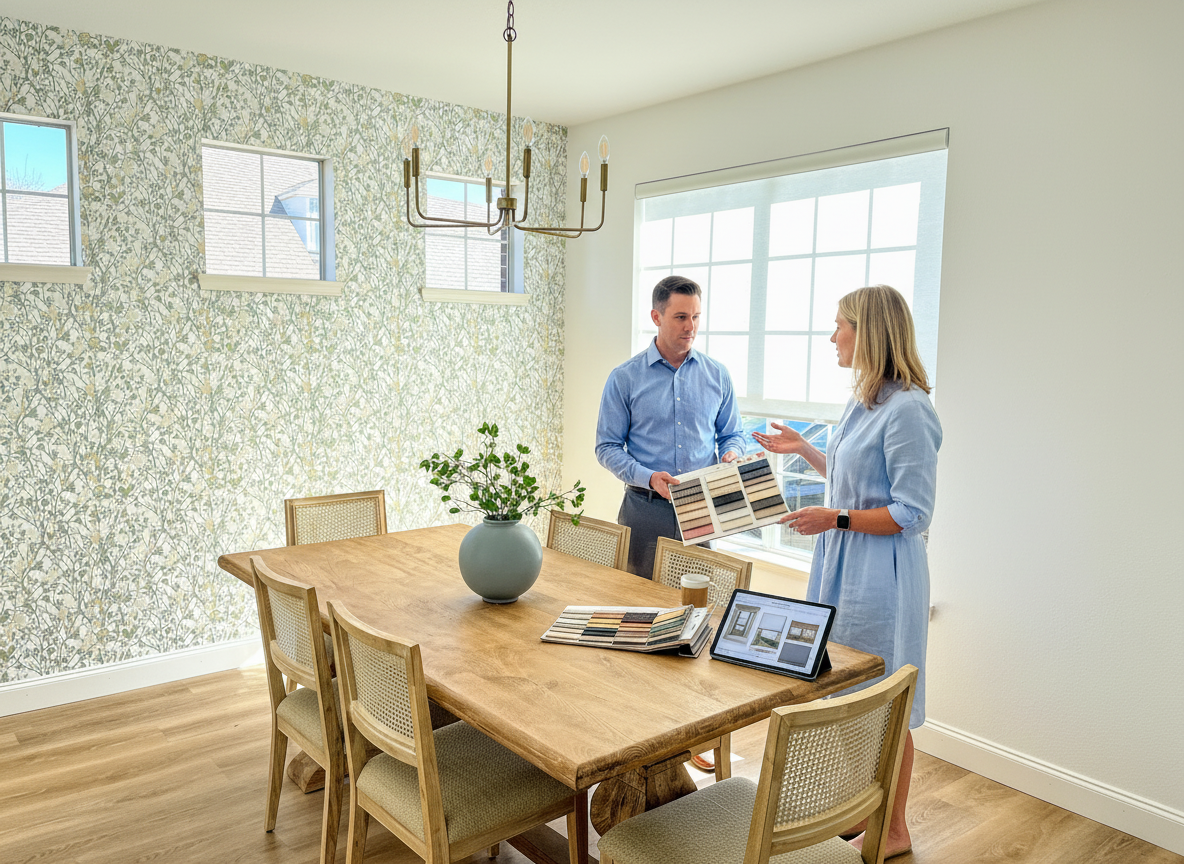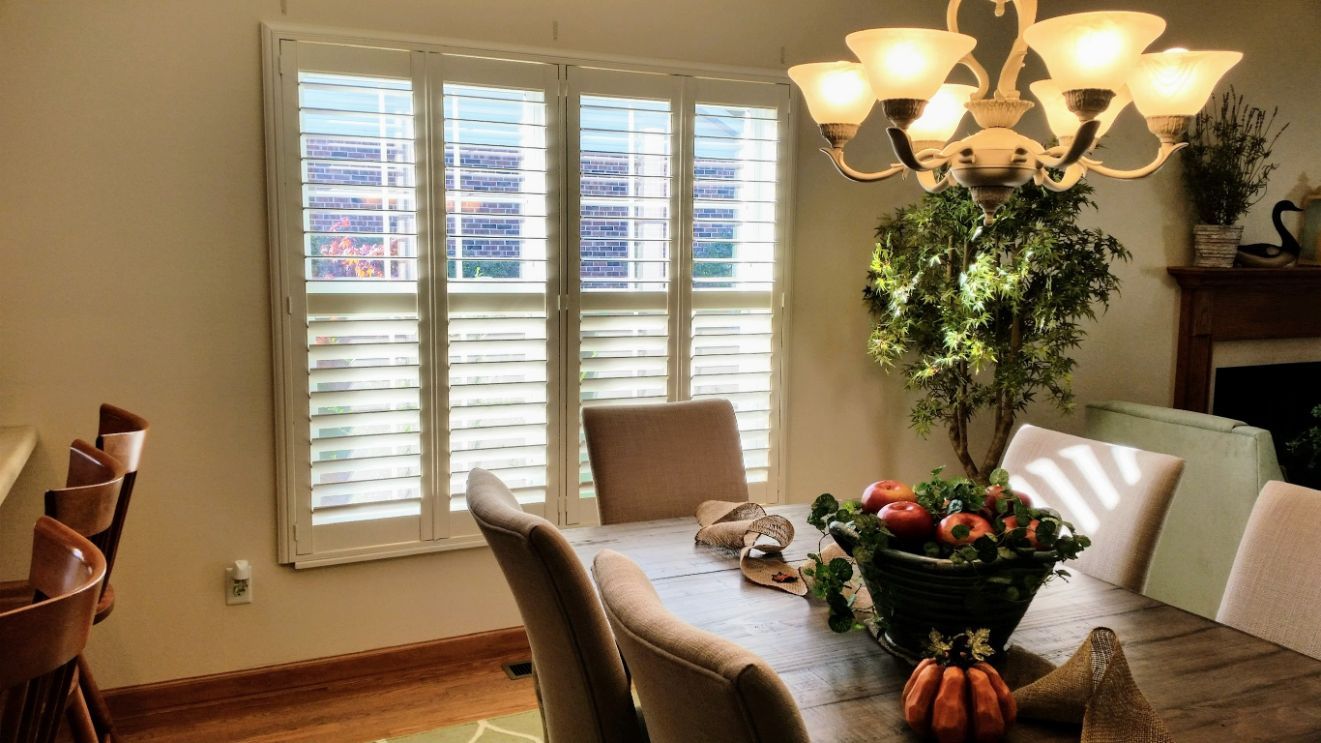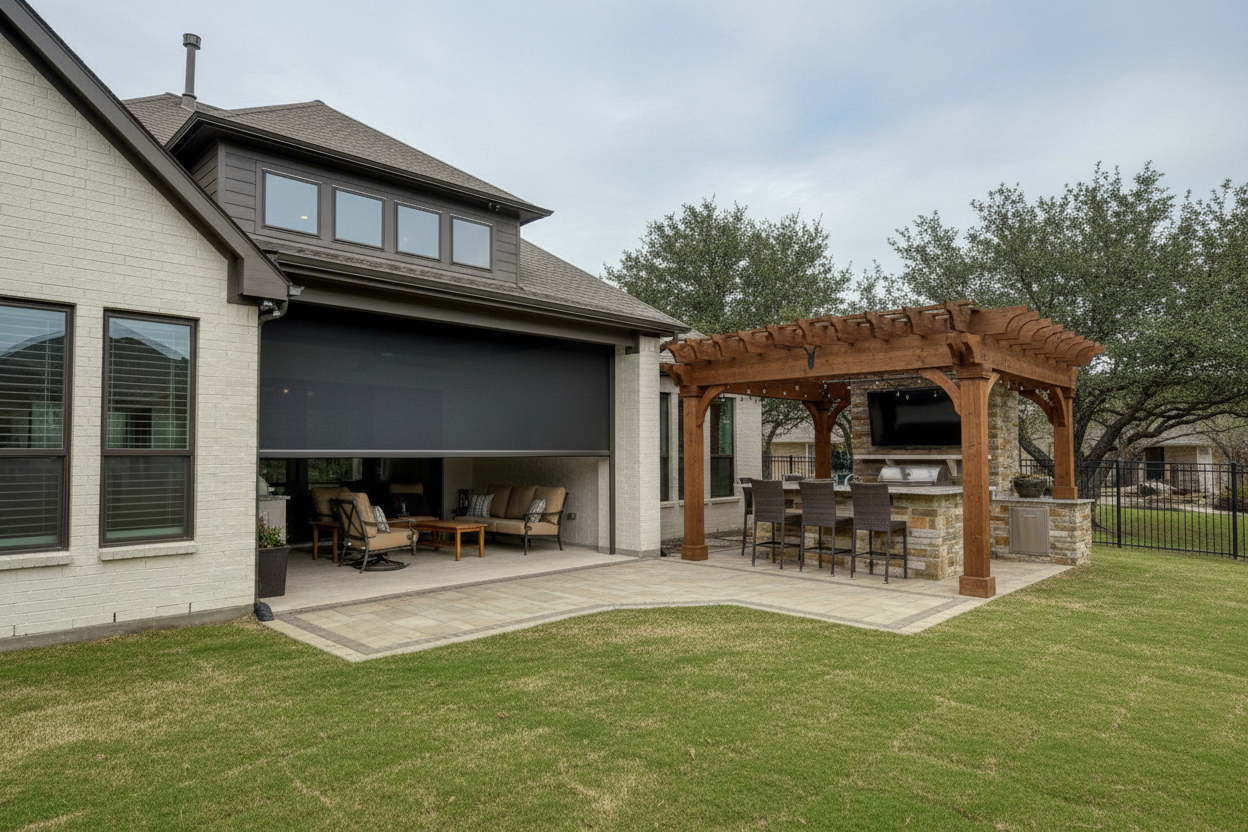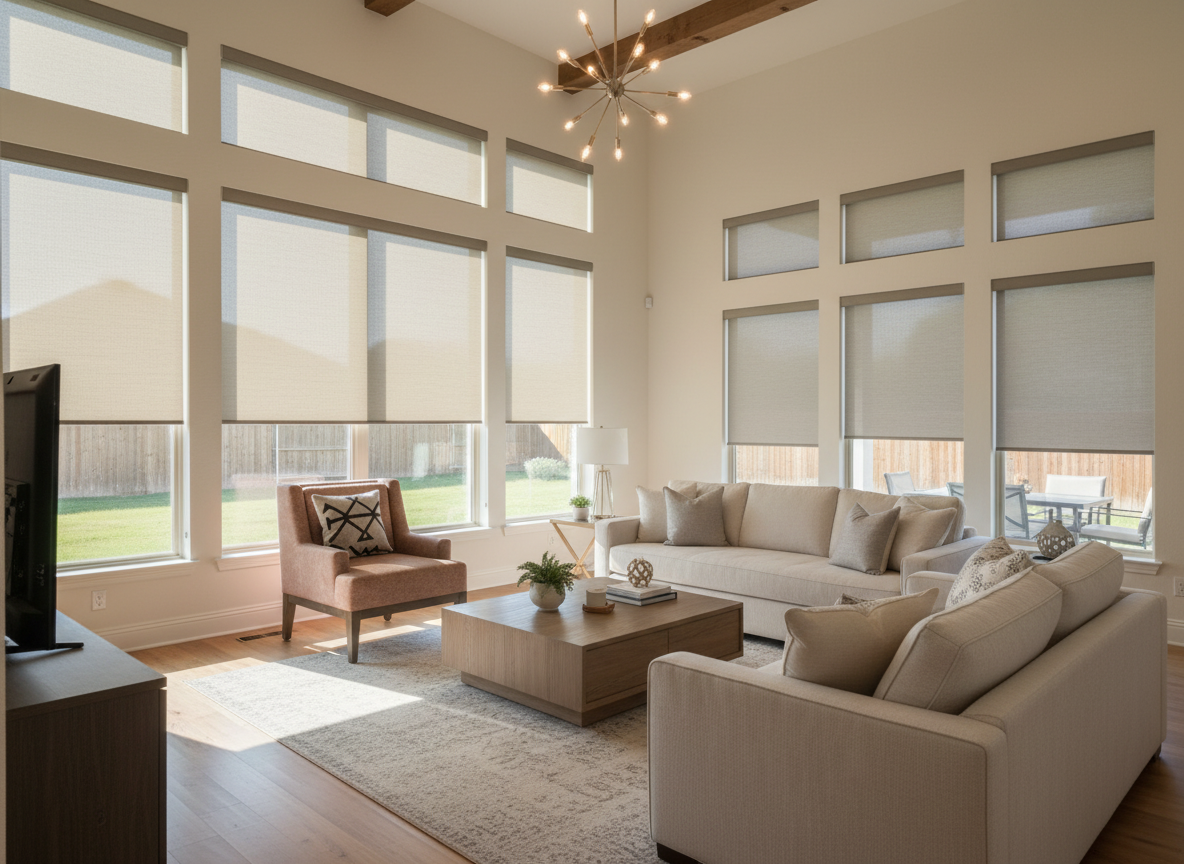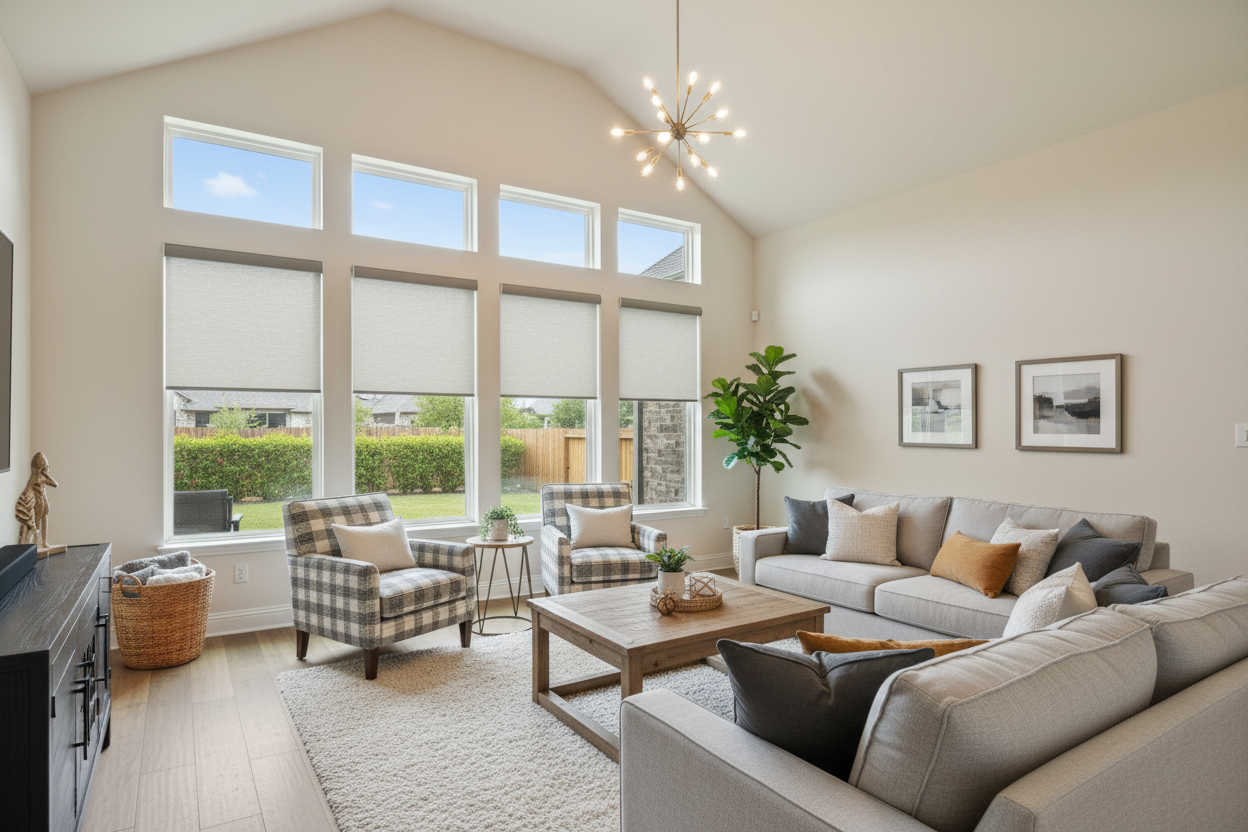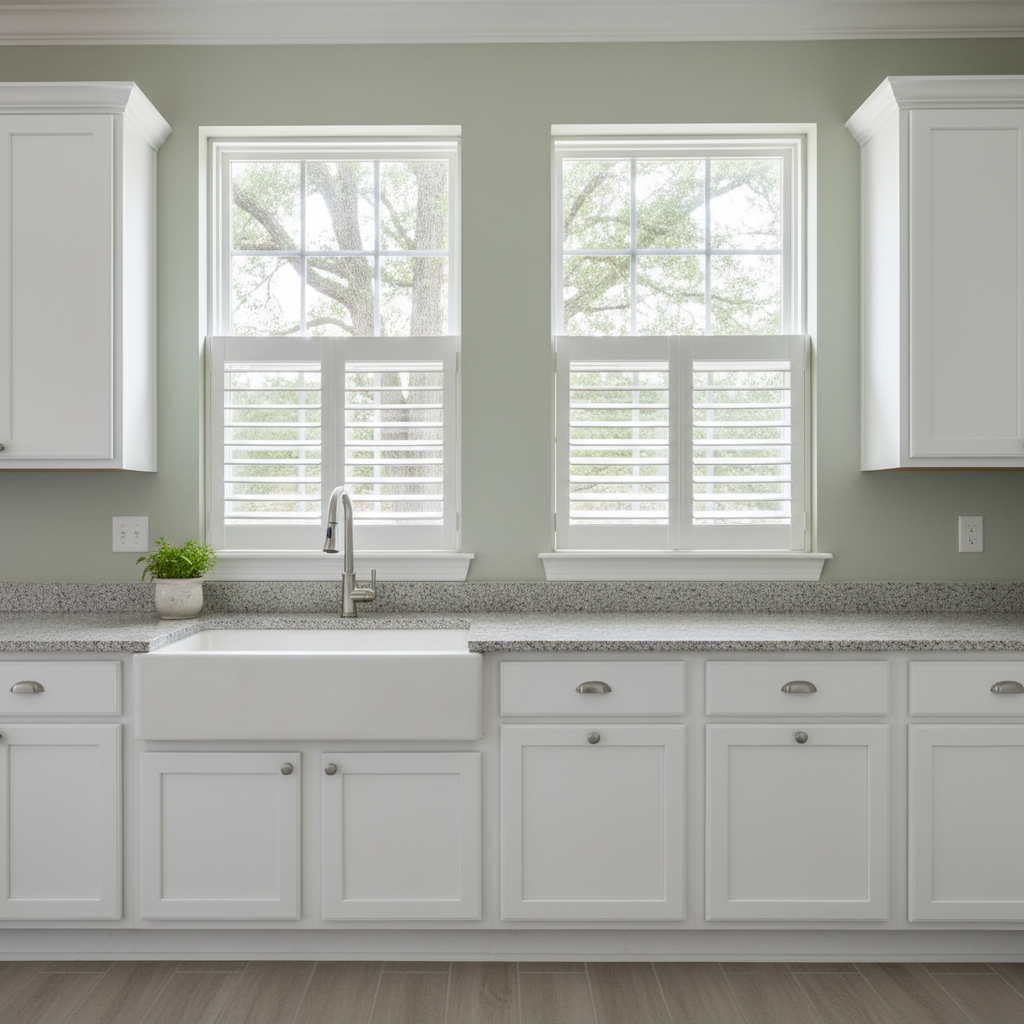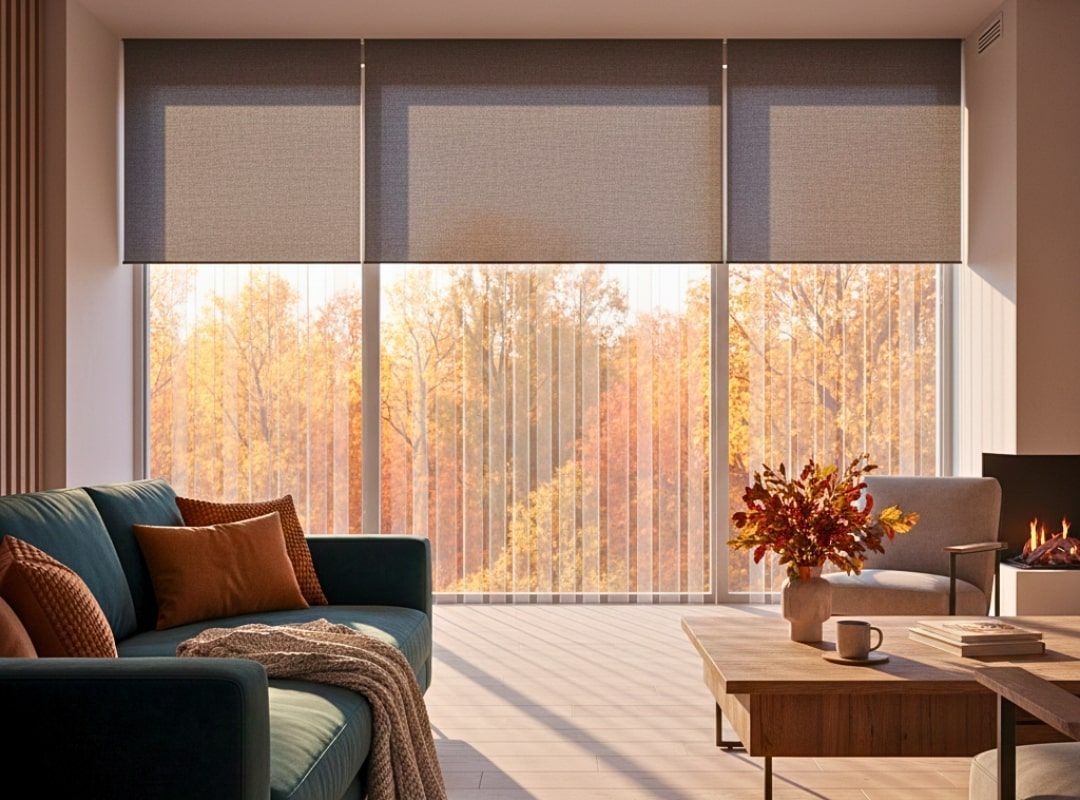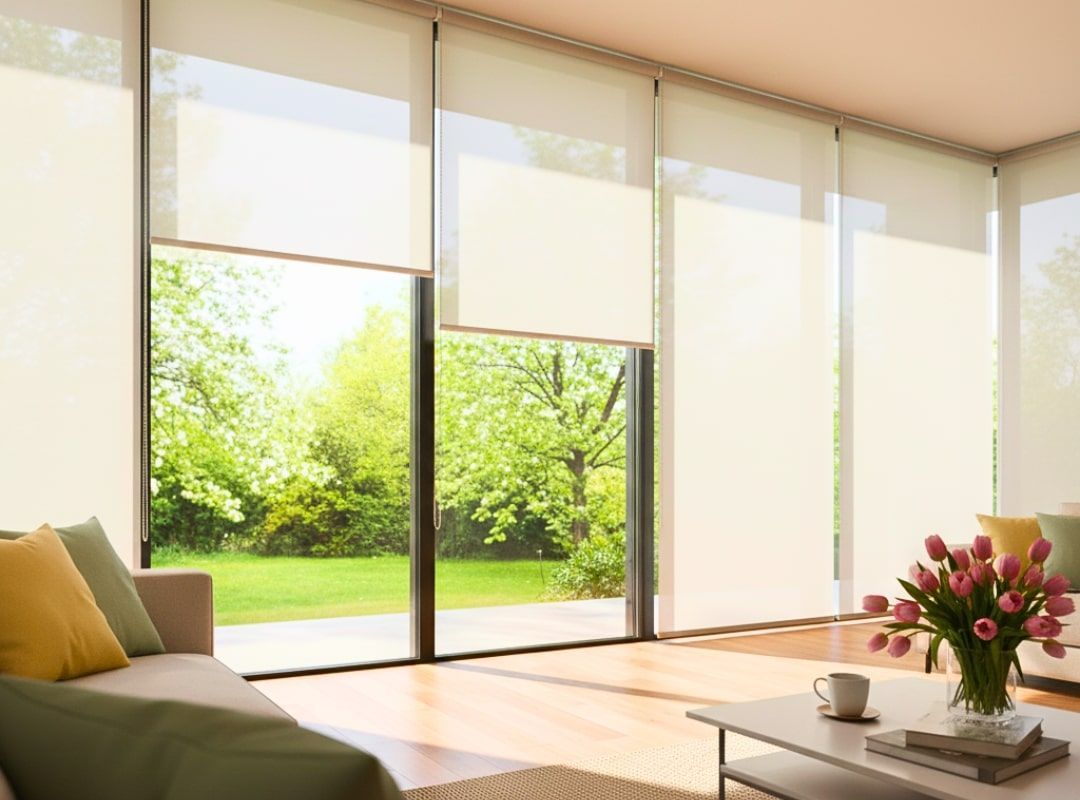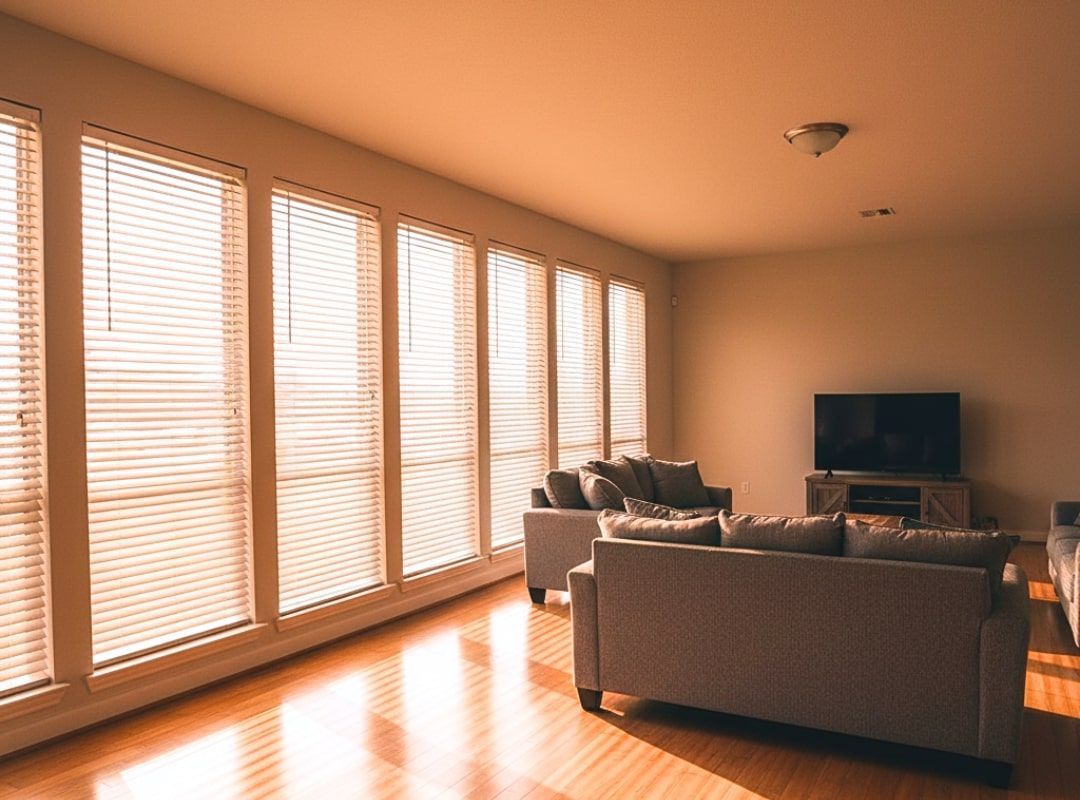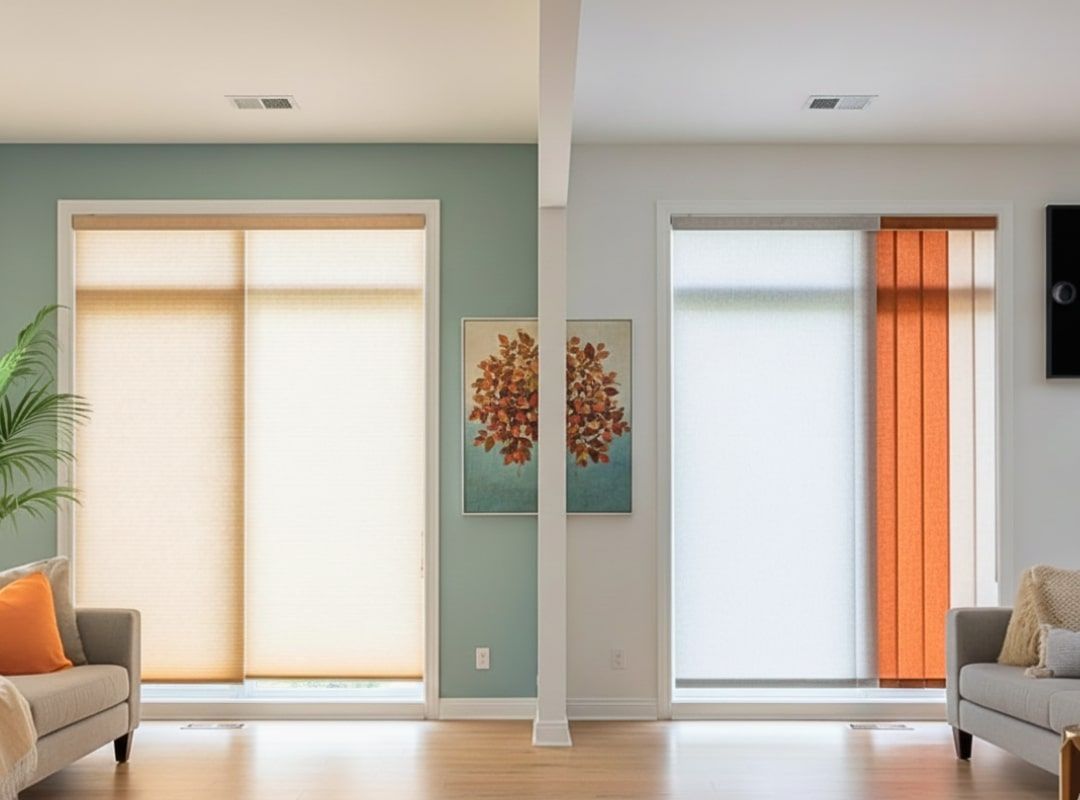What Is the Best Window Treatment for a Dining Room? Style, Function & Design Tips
TLDR;
The best
window treatment for a dining room blends style with function. Top choices include Roman shades for elegance and control, drapes for texture and formality, and plantation shutters for durability and privacy. The ideal option depends on your room’s style, privacy needs, climate, and overall budget.
Why Dining Room Window Treatments Matter
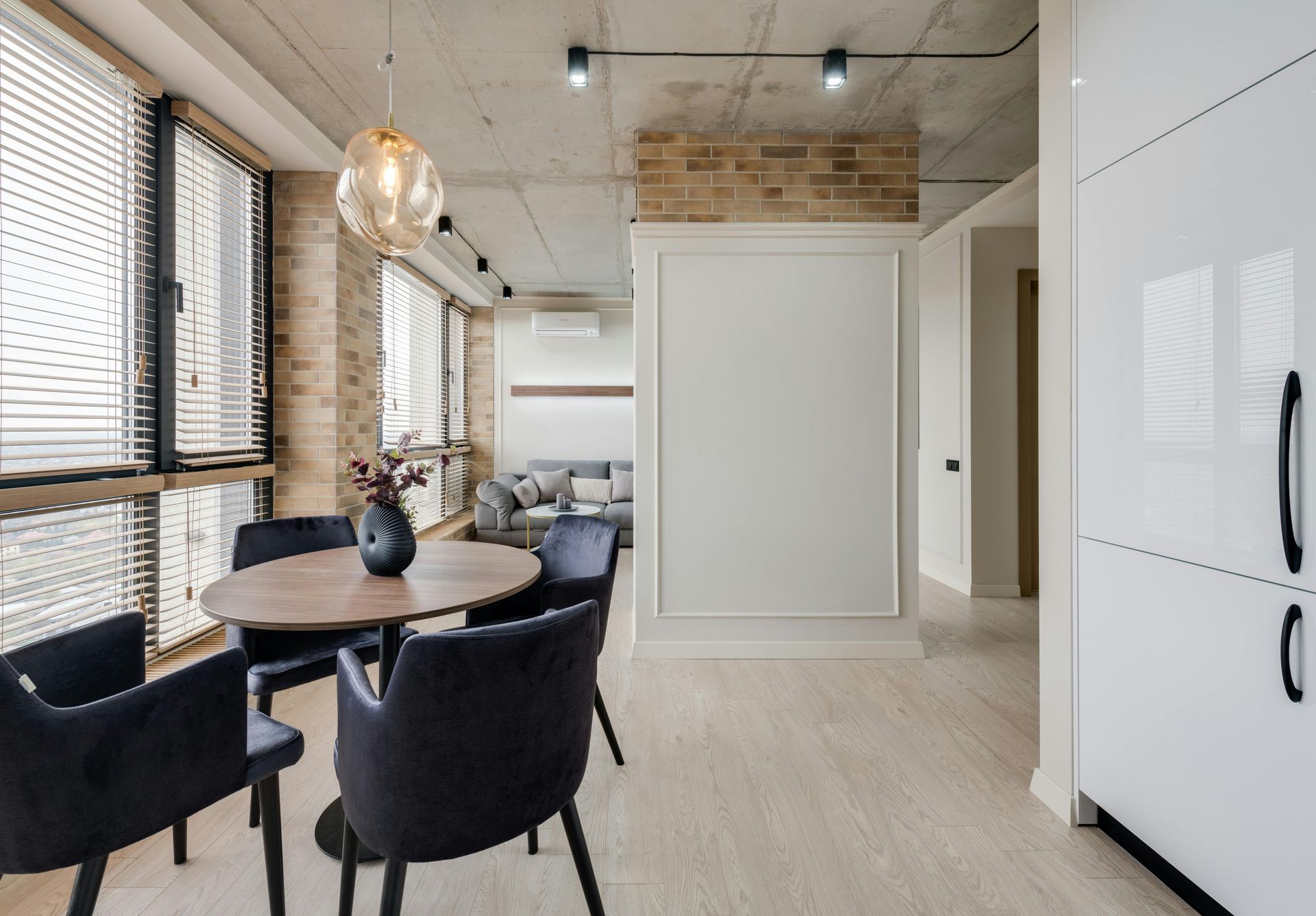
Dining rooms are not only for meals, they are for family gatherings, entertaining guests, and setting the mood. The right window treatment influences natural light, privacy, energy efficiency, and the overall style of your home. At
Love Is Blinds TX, we recommend looking at dining room window coverings as both a functional necessity and a design statement.
Key Criteria to Consider First
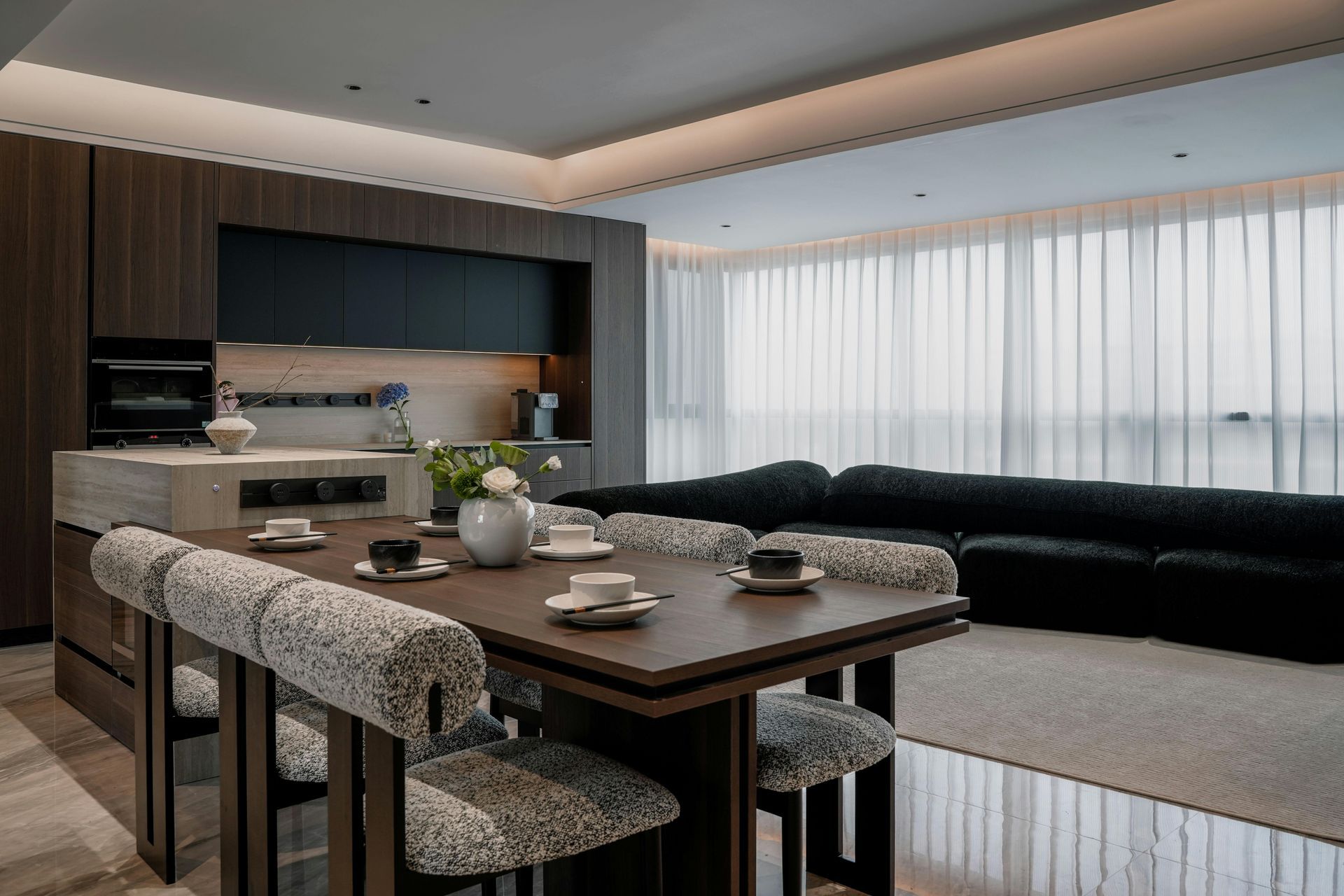
Light Control and Glare Management
The dining room often gets used during the day and evening. Glare on the table can be uncomfortable, especially in west-facing rooms.
Options for effective control:
- Sheer curtains for soft daylight without harsh glare
- Solar shades for dining rooms with large glass windows or sliding doors
- Layered drapes with blackout lining for full flexibility
Answer the question: if you want maximum versatility, layered treatments balance daylight with evening privacy.
Privacy and View Trade-Offs
Some dining rooms face busy streets or neighboring homes. Privacy is key during evening meals when interior lights make windows transparent.
Best choices:
- Roman shades with light-filtering fabric
- Plantation shutters that tilt for privacy while maintaining airflow
- Top-down, bottom-up shades to preserve outside views while blocking eye-level sightlines
Energy Efficiency and Climate Considerations in Texas
Texas homes face intense heat, strong sunlight, and high cooling demands. The right dining room window treatments reduce heat gain and protect furniture from UV fading.
Energy-conscious solutions:
- Cellular shades (honeycomb design traps air for insulation)
- Plantation shutters in faux wood for durability in humid climates
- Solar shades with UV protection for dining rooms exposed to long hours of direct sun
Safety and Maintenance
Dining rooms are often near kitchens. Spills, food particles, and grease may affect fabrics. Families with children or pets need durable, safe treatments.
What to look for:
- Cordless options or motorized shades for child safety
- Faux wood blinds for easy wipe-down cleaning
- Performance fabrics that resist stains
Budget and Custom vs Ready-Made Options
Not every homeowner needs custom solutions, but some dining rooms benefit from tailored treatments.
- Ready-made: more budget-friendly, faster installation, but limited fit and fabric selection
- Custom: precise sizing, wider range of fabrics, higher quality hardware, and a polished look
For Texas homeowners who want a refined dining room style, custom treatments often prove to be a worthwhile long-term investment.
Popular Dining Room Window Treatment Styles
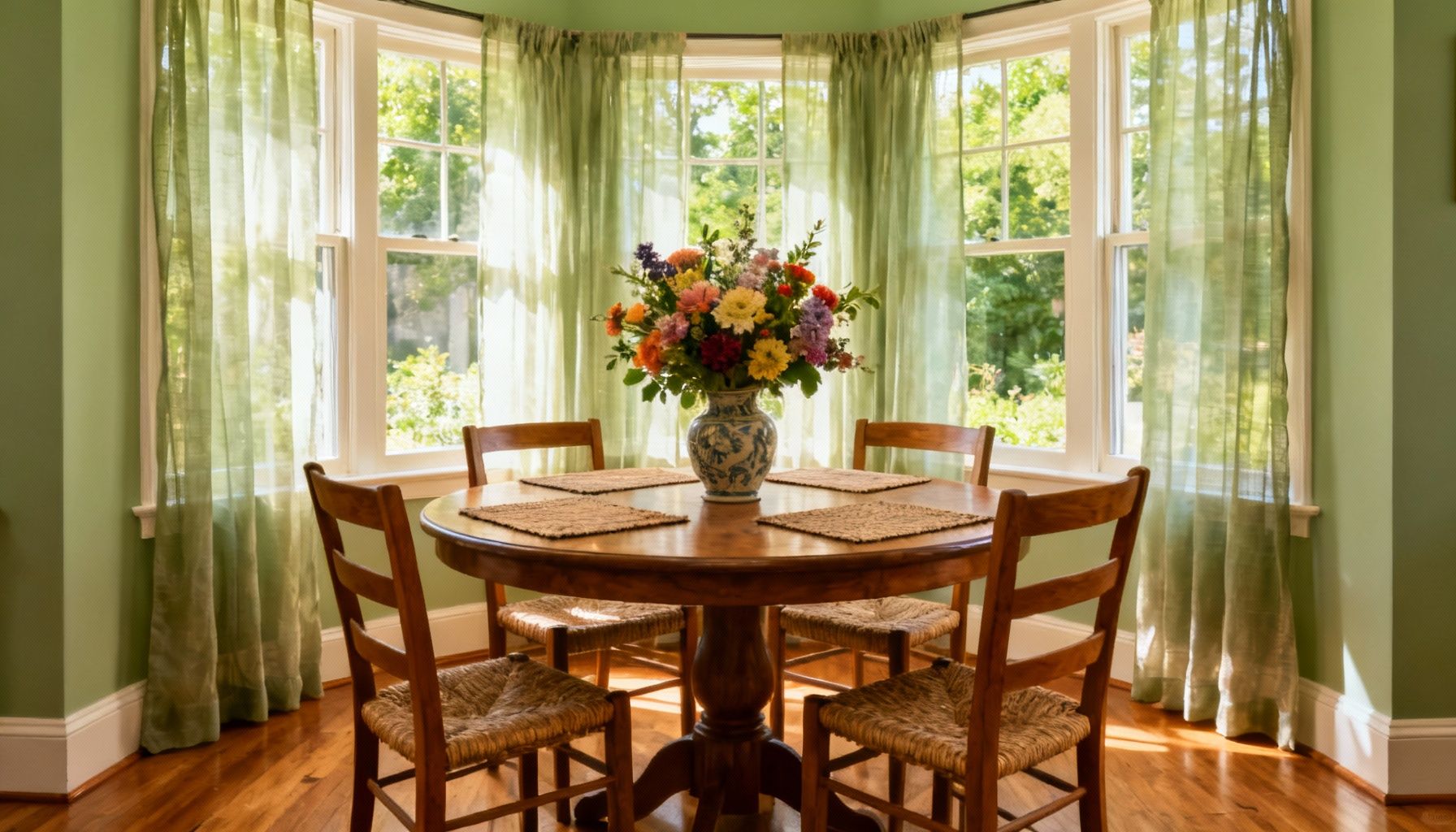
Curtains and Drapes
Curtains remain a timeless dining room choice.
- Linen for casual elegance
- Velvet or silk for formal spaces
- Cotton blends for easy cleaning
- Full-length panels to elongate ceilings
- Patterns or solids to complement existing furniture
Style tip: mounting rods closer to the ceiling makes the room feel taller.
Roman Shades
Roman shades provide tailored sophistication, but homeowners looking beyond the dining area may also want to consider zebra blinds as a versatile bedroom window blind option that combines style with functionality.
- Ideal for medium to small dining rooms
- Wide range of fabric choices
- Can be lined for blackout or left unlined for soft filtering
- Neat stacking when raised
Roller and Cellular Shades
Practical yet stylish.
- Roller shades fit modern or minimalist dining rooms
- Cellular shades add insulation and noise reduction
- Both available in cordless and motorized options
Plantation Shutters
Shutters bring structure and permanence.
- Popular in Texas for their classic look
- Excellent privacy and light control
- Durable in heat and humidity
- Easy to clean with a quick dusting
Layered and Hybrid Treatments
Layering enhances flexibility and depth.
Examples:
- Sheer roller shade paired with decorative drapes
- Roman shades under side panels
- Cellular shades with valances for softness
Woven Wood Shades
For homeowners who want natural texture, woven woods add warmth.
- Bamboo and grass materials suit farmhouse or coastal dining rooms
- Filter light while maintaining a soft glow
- Can be lined for privacy
Matching Treatments to Dining Room Styles
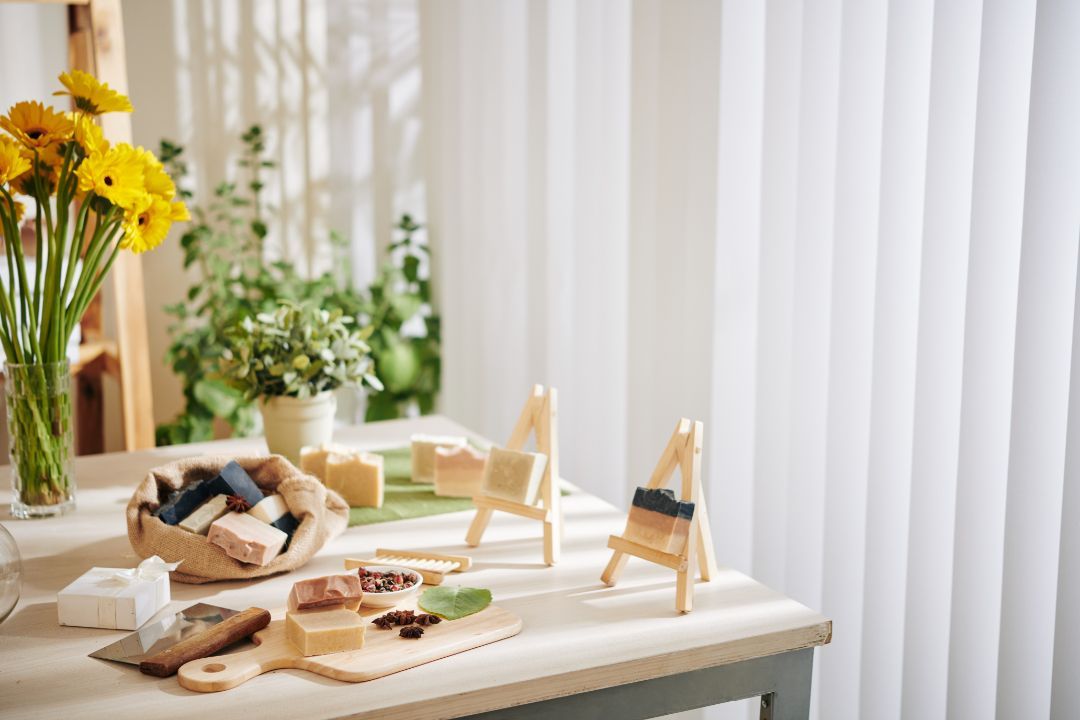
- Modern and Minimalist: Roller shades in neutral tones, slim hardware, clean lines
- Traditional and Formal: Velvet or silk drapes with ornate rods, Roman shades with elegant pleats
- Farmhouse and Rustic:
Woven wood shades with natural textures, linen drapes in soft neutrals
- Southwestern and Coastal (popular in Texas): Shutters in white or light finishes, sheer curtains in breezy fabrics
Scale, Proportion, and Visual Impact
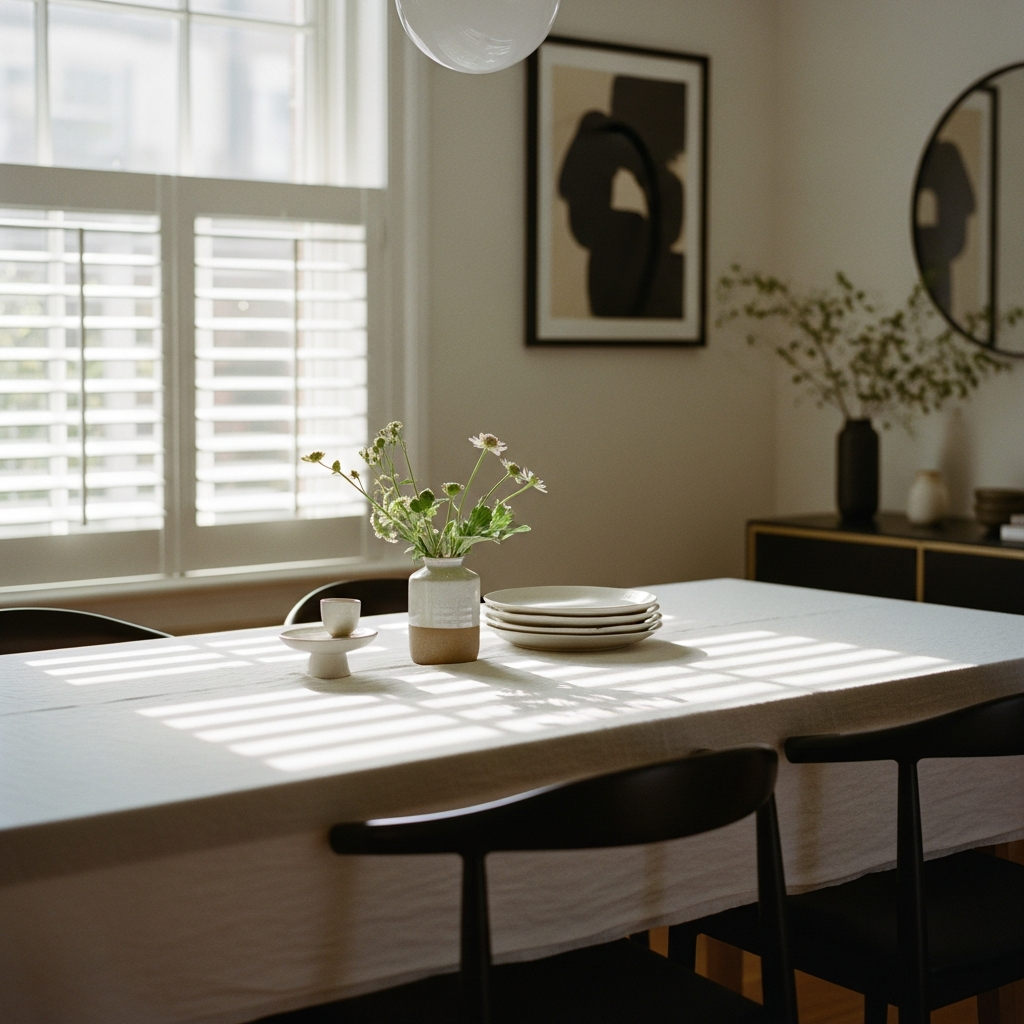
The way treatments are mounted changes how a dining room feels.
- Hang rods 6 to 12 inches above the window for added height
- Extend rods beyond window frames to allow more light
- Choose fabric fullness at 2 to 2.5 times the window width for rich drapery folds
Functional Features Worth Considering
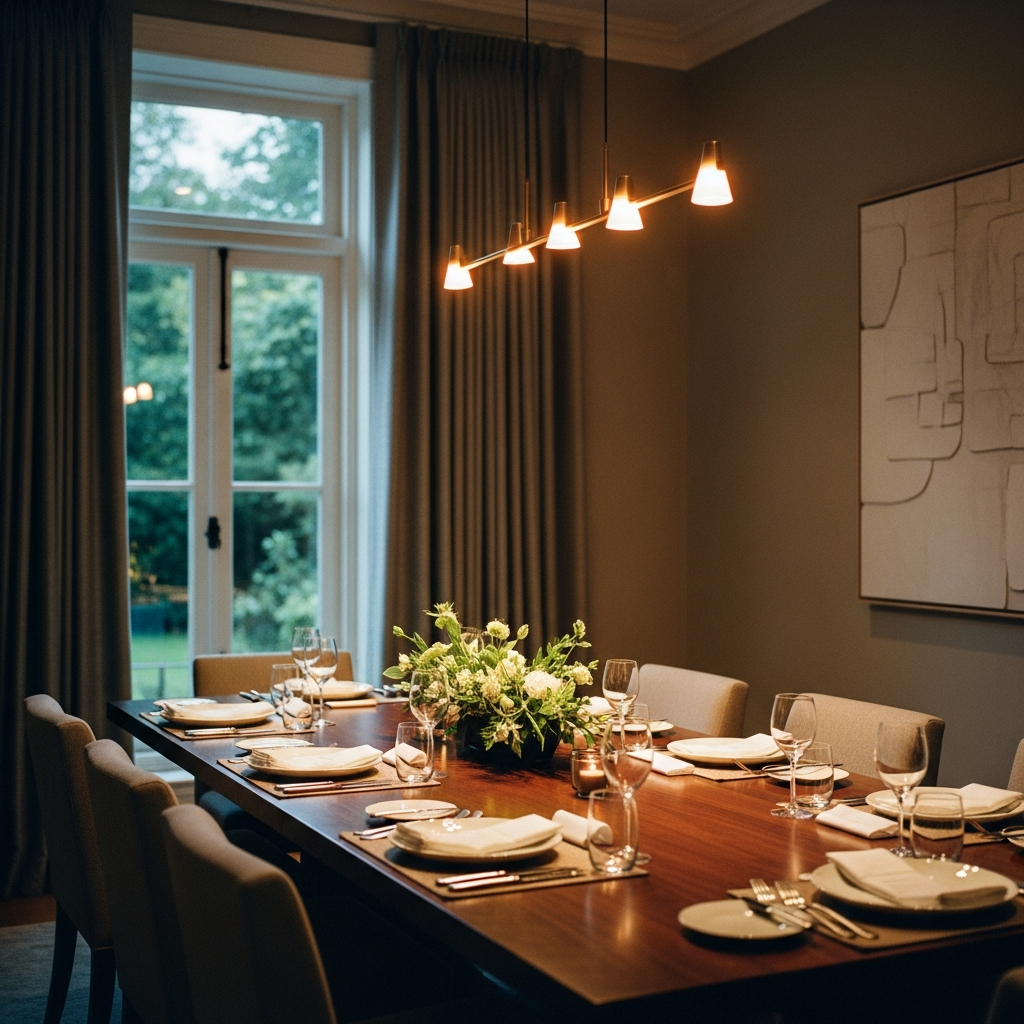
Motorization and Smart Control
Dining rooms used for entertaining benefit from motorized shades. Guests stay comfortable with a button press or voice command.
UV Protection and Fade Resistance
Texas sun is intense. Treatments with UV-blocking properties extend the life of your dining table, flooring, and furniture.
Cleaning and Maintenance
- Faux wood blinds and shutters: easy to wipe clean
- Performance fabrics: resist stains and odors
- Roller shades: smooth surfaces collect less dust
Texas-Specific Dining Room Window Treatment Tips
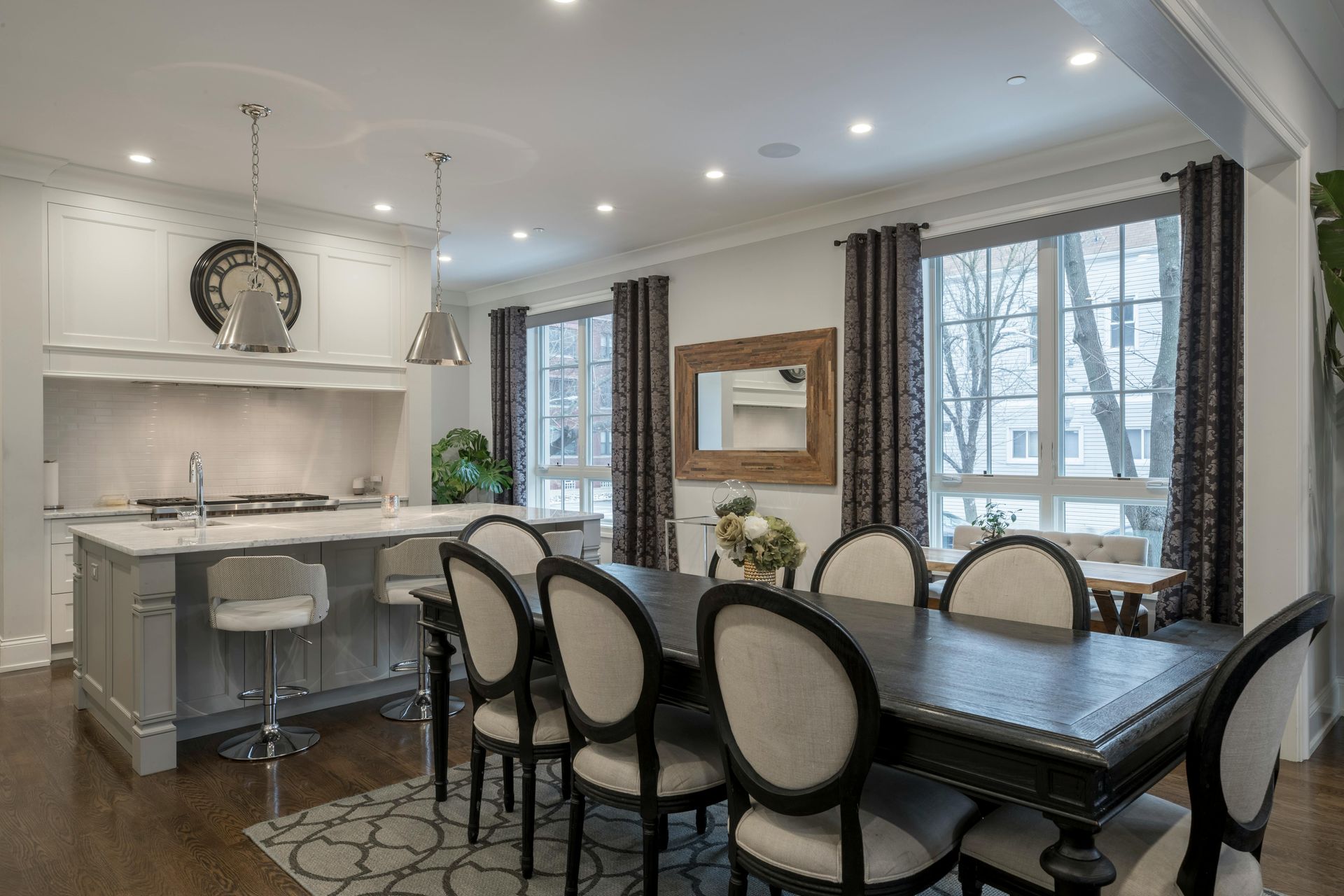
- Prioritize energy efficiency with
cellular shades or shutters
- Sliding panel tracks or vertical cellular shades work well for large glass doors
- Formal dining spaces often balance elegance with practicality; drapes layered over motorized shades achieve this balance
- High ceilings benefit from tall drapery panels that emphasize vertical space
Common Mistakes to Avoid
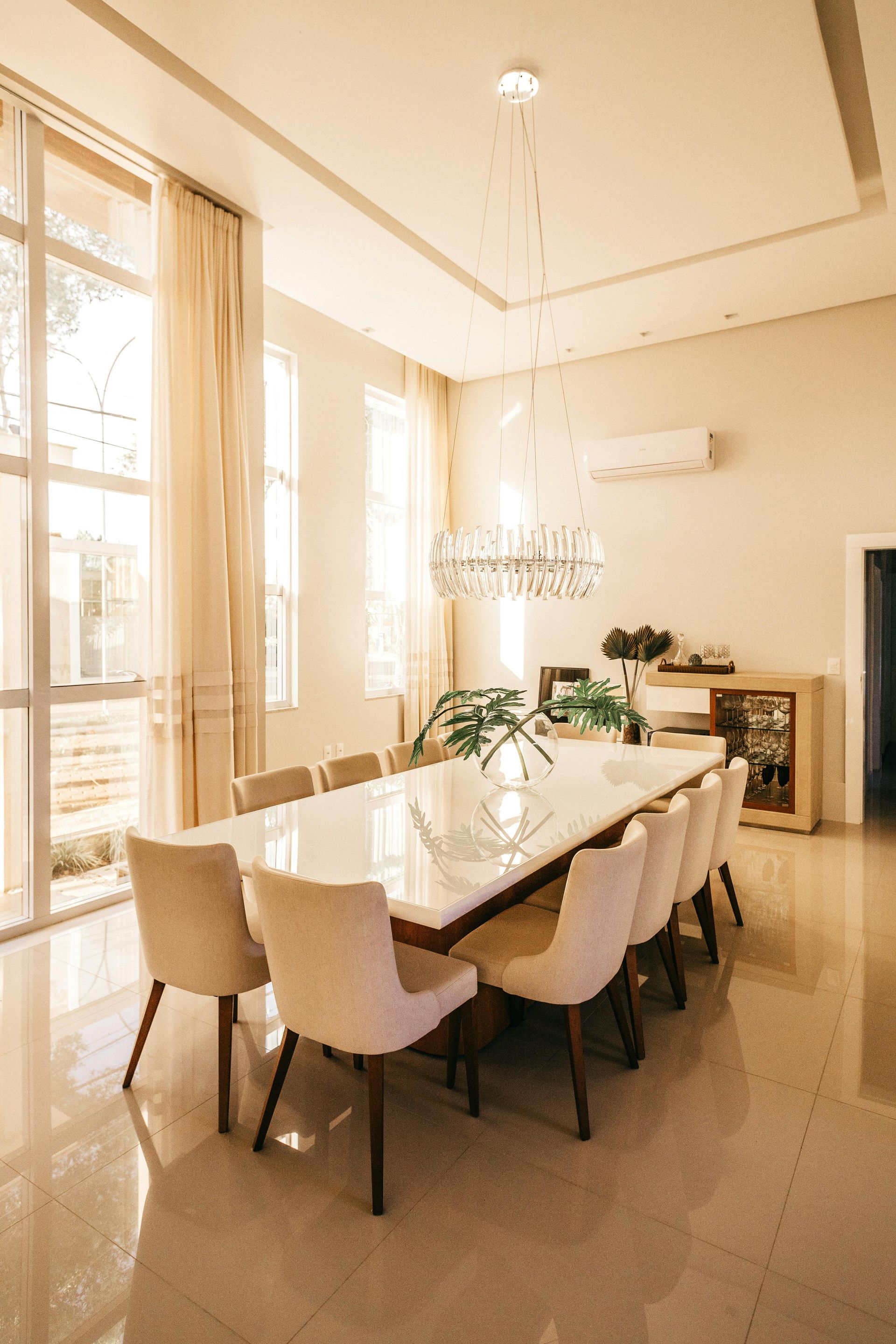
- Installing rods too low and shortening the room visually
- Choosing fabrics that stain easily in a food environment
- Overly heavy drapes in small dining rooms that block too much light
- Forgetting nighttime privacy when relying on sheer treatments alone
Measuring and Installing for Best Results
Accurate measurement is essential.
- Measure width at top, middle, and bottom
- Add extra width for drapes so panels do not look skimpy
- Mount hardware into studs for heavy fabrics
- Decide early between DIY installation and professional fitting
Investment Considerations
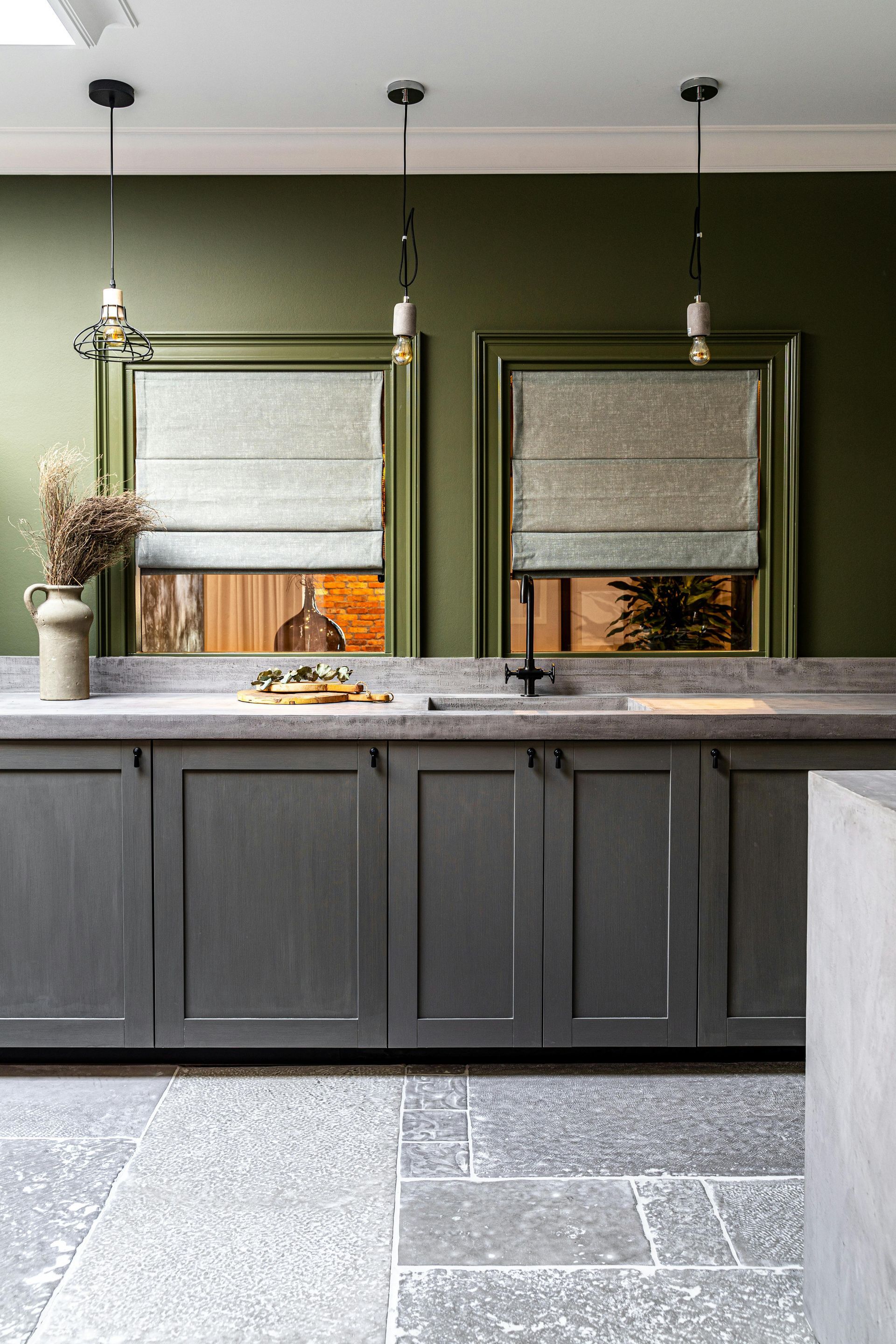
Window treatments are available across a wide range of investment levels. Ready-made options are generally more budget-friendly, while custom or motorized solutions may require a larger investment but deliver long-term benefits such as energy efficiency, enhanced durability, and improved style. Ultimately, the right choice balances your design goals with your comfort and budget preferences. For hosts, many of these same principles apply when choosing
window treatments for Airbnbs, where durability, privacy, and easy maintenance are just as important as style.
Frequently Asked Questions
What window treatment is best for dining rooms facing west?
Solar shades or cellular shades reduce glare and heat in west-facing dining rooms. Layer with drapes for nighttime privacy.
Can I mix blinds with drapes in the same dining room?
Yes, layering blinds or shades with drapes provides flexibility, texture, and style.
Which materials are best if my dining room is near the kitchen?
Faux wood and performance fabrics resist stains and grease better than delicate silks or velvets.
How long should dining room curtains be?
Curtains should reach the floor. For a dramatic effect, panels may puddle slightly.
Are motorized dining room shades worth the investment?
Yes, especially for tall or hard-to-reach windows. They add convenience and integrate with smart home systems.
Dining Room Window Covering Styles for Your Home
The best dining room window treatment depends on your goals:
- Roman shades for elegance
- Drapes for softness and formality
- Shutters for structure and durability
- Solar or cellular shades for energy efficiency
At Love Is Blinds TX, we recommend starting with function, then selecting the treatment that matches your dining room style. Once you know whether light control, privacy, or energy efficiency is the priority, the right choice becomes clear.

